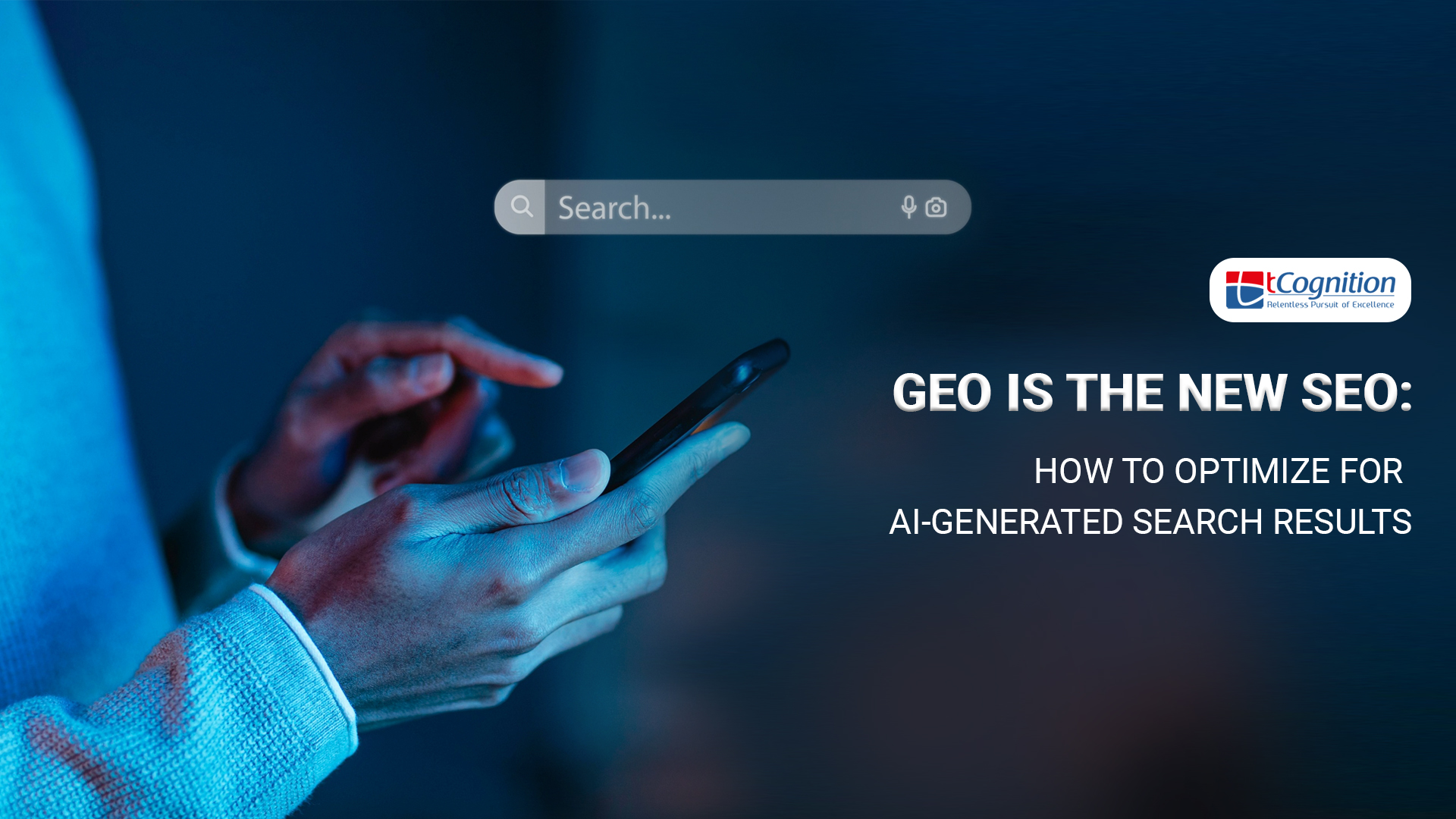In today’s fast-evolving digital ecosystem, where artificial intelligence (AI) is transforming how users access and consume information, traditional Search Engine Optimization (SEO) practices are no longer sufficient. With AI-powered assistants like ChatGPT, Google Gemini, Microsoft Copilot, and Perplexity reshaping search behavior, businesses must now adopt Generative Engine Optimization (GEO) to maintain and expand their digital presence.
This blog explores the core principles of GEO, how it diverges from traditional SEO, and how companies can effectively integrate it into their content strategies.
What is Generative Engine Optimization (GEO)?
GEO is the strategic process of optimizing content to be referenced by AI-powered generative engines. Unlike traditional search engines that display ranked lists of links, generative engines deliver direct, synthesized answers to user queries.
Generative engines prioritize:
- Contextually rich, structured content
- Authority and accuracy
- Semantic relevance
Common generative engines include:
- ChatGPT (OpenAI)
- Google Gemini
- Microsoft Copilot
- Perplexity AI
Why GEO Matters in 2025 and Beyond
Generative engines are increasingly becoming the preferred search method for users seeking fast, reliable answers. Key trends driving the need for GEO:
- Rise of conversational queries: More users are asking full-sentence, question-based queries.
- Reduced reliance on link clicks: AI answers often summarize content without linking.
- AI-generated search dominance: Platforms like Google and Microsoft are integrating AI into their core search experiences.
Without GEO, even high-quality content may remain invisible in AI-generated search results.
GEO vs. Traditional SEO
| Feature | Traditional SEO | Generative Engine Optimization (GEO) |
|---|---|---|
| Focus | Keywords, backlinks | Context, clarity, structured content |
| Search Behavior | Click-through to web pages | Instant answers within AI |
| Ranking Signals | Domain authority, metadata | Content authority, trustworthiness |
| Primary Audience | Human readers | AI models and engines |
GEO Optimization Strategies for 2025
1. Craft Structured, Authoritative Content
AI tools favor structured and expert-level writing. Use clear subheadings, bullet points, and definitions. Include:
- Industry statistics and data points
- Expert quotes or bylines
- Concise answers to commonly asked questions
2. Use Schema Markup Extensively
Enhance machine readability with:
- FAQ schema
- Author schema with credentials
- How-to and article schema
- Organization schema (brand info, logo, contact)
3. Target Natural Language Keywords
Examples include:
- “How to rank in ChatGPT“
- “What is generative engine optimization?”
- “GEO strategies for 2025”
Use keyword tools like Ahrefs and Semrush to track these long-tail terms.
4. Publish on AI-Crawled Platforms
Diversify your presence across:
- Medium and LinkedIn Articles
- Reddit and Quora threads
- YouTube (with full descriptions)
This increases your content’s visibility to AI models sourcing across multiple platforms.
5. E-A-T (Expertise, Authority, Trust)
Ensure:
- Transparent authorship
- Up-to-date, peer-reviewed content
- Citations from reputable external sources
How to Measure GEO Success
Since AI-generated responses may not produce standard click metrics, use:
- Perplexity.ai: Observe citation presence
- ChatGPT with browsing: See how your brand is represented
- Search Console: Monitor growth in natural language queries
- Semrush: Evaluate featured snippet visibility and AI mentions
Final Thoughts: GEO Is the Future of Digital Marketing
GEO does not replace SEO—it expands on it. Organizations that integrate GEO now will:
- Increase discoverability in AI-generated content
- Build trust with users and AI systems
- Lead digital marketing innovation into the future
At tCognition, we help organizations future-proof their content strategy for the AI age. From schema integration to strategic distribution, our digital marketing team ensures your brand is both visible and authoritative across traditional and AI-powered search platforms.
Need help optimizing for GEO? Contact us to learn how we can elevate your digital presence in the age of intelligent search.

